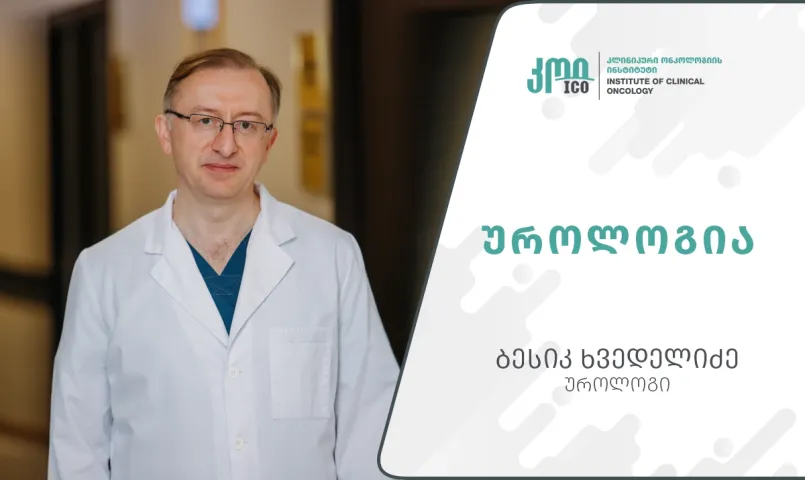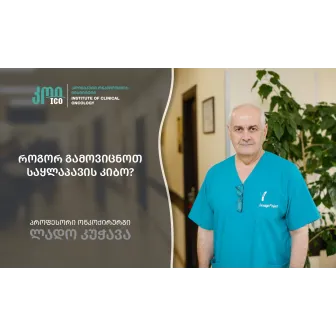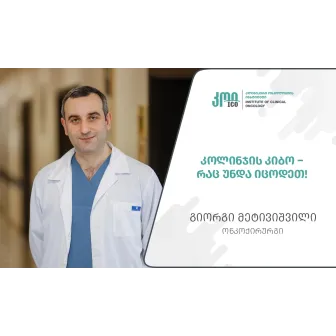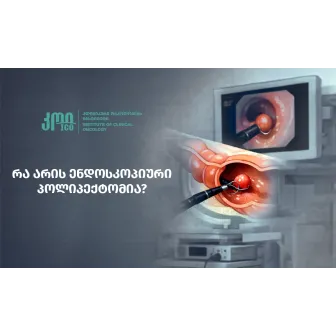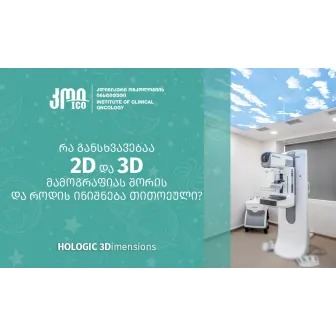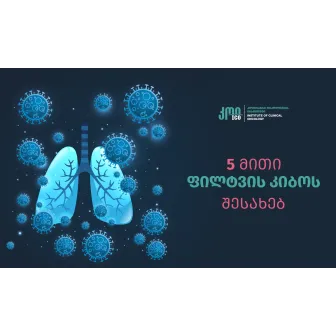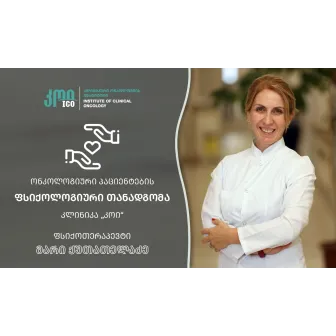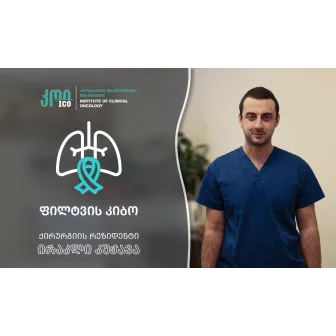What is urology? Which are its related specialities, how is it diagnosed and treated, how is the surgery performed, and what are the symptoms requiring referral to a doctor? Urologist Beso Khvedelidze, a doctor at the Institute of Clinical Oncology, talks to us about these interesting topics
- What does urology include?
Urology is a branch of clinical medicine that studies diseases of the urinary and genital organs, as well as diseases of the retroperitoneal area, in both women and men. Urology is a surgical discipline, so unlike nephrology, its treatment method is mainly surgical.
- What does outpatient urology stand for?
An outpatient visit includes many aspects, depending on the patient’s complaints. E.g. male patient comes to an outpatient urologist if he experiences: burning during urination, difficulty urinating, bloody urine or bloody discharge, any purulent or mucous discharge, pain during urination, pain in the perineum, pain behind the pubic bone, frequent urination, and an urgent desire to urinate.
What is the diagnosis in such a case?
Standard tests include a complete urinalysis and ultrasound.
In male patients, the size of the prostate is determined, especially whether there is residual urine, and what the structure of the prostate is. If necessary, a bacteriological test is performed, depending on the urine analysis. Bacteriology can be both urine and a separate secretion or prostate secretion, as well as sperm.
Outpatient urology also includes diagnostic cystoscopy. It implies the examination of the urinary system (with or without anesthesia). Outpatient urology also includes such manipulations as urethral cannulation, when there is a narrowing of the urethra and its expansion occurs.
- What does surgical urology imply?
Urology surgery implies urgent (rapid) intervention in case of acute urinary retention. In such cases, immediate catheterization is performed, or, if it is not possible, the trocaral or open method is applied, when a catheter is inserted into the bladder surgically. Urgent urological intervention is also required for a ureteral stone, which causes severe pain, the so-called stone passage, which is one of the most severe pains in medicine. When this problem is diagnosed and we know that there is no life-threatening condition, it is necessary to relieve it. If the process is not amenable to medical treatment, then stenting of the ureter becomes necessary, which is done to relieve the kidney, and relieve acute pain. The stone remains in place and after calming down, it is removed by planned surgical intervention.
- What causes such pain?
Pain is caused by the stone displacement renal capsule tension. There are also exceptions, rare cases that require urgent intervention, for example, in pediatric urology, acute scrotal abscess occurs, when it is purulent or inflamed, when urgent surgical intervention is required. Also, testicular torsion is common in childhood. If the torsion is not performed within the first 6 hours, the gland undergoes necrosis, and an orchiectomy is required. Often, patients make a mistake not seeking help, because after 6 hours, the pain disappears, but at this time, necrosis begins and the gland becomes removable.
As for planned surgeries, such interventions are performed after all preliminary studies have been conducted, including tests, ultrasound, CT, or MRT. In certain diseases, not only a specific organ but also the entire organism needs to be evaluated.
As for the type of surgery, today, our clinic provides all types of urological surgical interventions. Not only are oncological surgeries performed, but also plastic surgeries, which are very rare not only in Georgia but also abroad. For example, urethral plastic surgery is considered to be a difficult operation, which is done in cases when we use the urethral, lip, or cheek mucosa for transplantation. Such surgeries are performed successfully and without any complications.
As for onco surgery, all types of oncological operations are performed, e.g., for prostate cancer, ureteral tumors (both in men and women), bladder tumors, such as open resection or partial cystectomy, cystoprostatectomy, urinary diversion (or urine diversion), Bricker operation (diversion of a segment of the intestine), orthotypical low-pressure urinary reservoirs (the so-called artificial bladder). The patient needs 2-3 months to get used to the new type of urination, since the intestinal wall does not contract on its own, and there is no sensation of urination. The operation itself is very difficult. Cystectomy and artificial reservoir, in terms of duration, last 6-7 hours.
When a man has problems urinating - e.g., in case of a bladder tumor, benign prostatic hyperplasia, or prostate cancer - one of the methods is transurethral (through the urethra) intervention. In the case of prostate cancer, this procedure is not performed to cure the cancer, but only to relieve symptoms. As a rule, in such cases, patients undergo hormonal treatment. The goal of the intervention is to restore the function of urination even when the disease is not active and tumor markers are normal. Such an intervention is called recanalization.
As for kidney tumor surgery, we perform it mainly in an open manner, especially if the tumor is large. Organ-preserving surgery is performed, which is recommended for tumors up to 4 cm in size, although there are certain nuances here, where it may be necessary to remove the kidney for tumors as small as 1 cm.
It is noteworthy to say that our clinic successfully performs surgery for a rare oncological disease, such as a tumor of the renal pelvis or ureter.
- Views:2104




